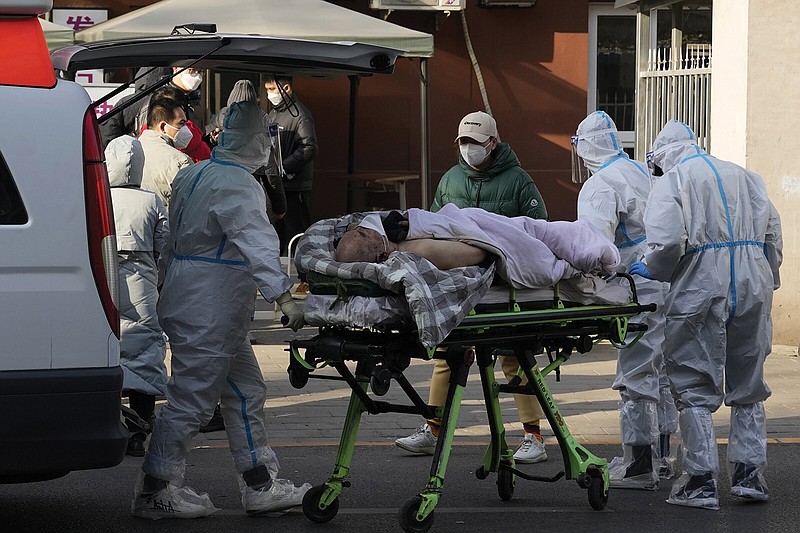BEIJING -- A rash of covid-19 cases in schools and businesses were reported Friday in areas across China after the ruling Communist Party loosened anti-virus rules as it tries to reverse a deepening economic slump.
While official data showed a fall in new cases, it no longer covers large parts of the population after the government ended mandatory testing Wednesday for many people aimed at gradually emerging from "zero covid" restrictions.
Xi's government began to loosen controls Nov. 11 after promising to reduce their cost and disruption.
"Relaxing covid controls will lead to greater outbreaks," Neil Thomas and Laura Gloudeman of Eurasia Group said in a report. "But Beijing is unlikely to return to the extended blanket lockdowns that crashed the economy earlier this year."
The changes suggest the ruling party is easing off its goal of preventing virus transmission, the basis of "zero covid," but officials say that strategy still is in effect.
Restrictions probably must stay in place at least through mid-2023, public health experts and economists say. They say millions of elderly people need to be vaccinated, which will take months, and hospitals need to be strengthened to cope with a surge in cases.
On Friday, the government reported 16,797 new cases, including 13,160 without symptoms. That was down about one-fifth from the previous day and less than half of last week's daily peak above 40,000.
More changes announced Wednesday allow people with mild covid-19 cases to isolate at home instead of going to a quarantine center. A requirement for subway riders, supermarket shoppers and others to show negative virus tests also was dropped, though they still are needed for schools and hospitals.
A post signed by a user in Dazhou, a southwestern city in Sichuan province, said all but five students in a public school class of 46 were infected. The user declined to give a name or other details.
The requirement for hundreds of millions of people to be tested as often as once a day in some areas over the past two years helped the government spot infections with no symptoms.
Ending that approach reduces the cost of monitoring employees and customers. But it increases the risk they might spread the virus.
It isn't clear whether any of the changes were a response to the protests that erupted Nov. 25 in Shanghai, Beijing and other cities against the human cost of "zero covid."
Social media posts suggested some cities might have outbreaks that weren't reflected in official figures.
Posts dated Thursday by 18 people who said they were in Baoding, a city of 11 million southwest of Beijing, reported they tested positive using home kits or had fevers, sore throats and headaches. Meanwhile, the Baoding city government reported no new cases since Tuesday.
Drugstores were mobbed by customers who bought medications to treat sore throats and headaches after rules were dropped that required pharmacists to report those purchases.
Also Friday, the market regulator announced prices of some medicines including a traditional flu treatment that rose as much as 500% over the past month. It said sellers might be punished for price gouging.
Lines formed outside hospitals, though it wasn't clear how many people wanted treatment for covid-19 symptoms.
Hong Kong, which enforces its own anti-virus strategy, has faced a similar rise in cases as the southern Chinese city tries to revive its struggling economy by loosening controls on travel and the opening hours of restaurants and pubs.
Hong Kong reported 75,000 new cases over the past week, up about 25% from the previous week. But those don't include an unknown number of people who stay at home with covid-19 symptoms and never report to the government.
Information for this article was contributed by Caroline Chen, Yu Bing, Kanis Leung and Dake Kang of The Associated Press.
